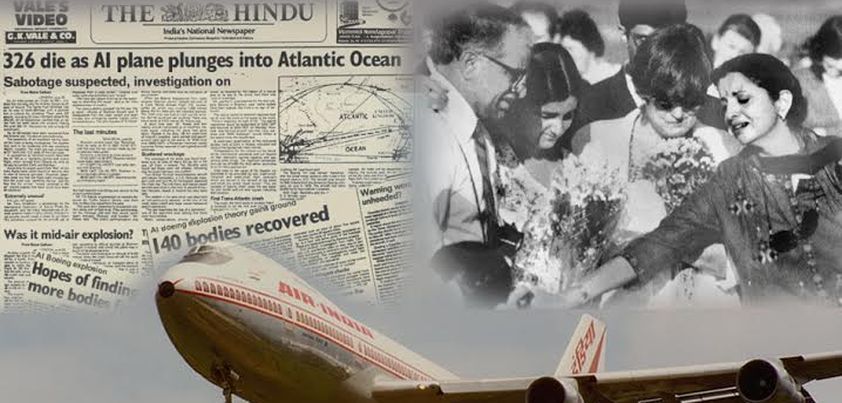 The most succinct summary of this Bharati Mukherjee story I’ve seen came from a Goodreads review: An Iraqi Jew unwittingly aids a Central American revolution. There is obviously a lot more to it, including lust, arms smuggling, treachery and murder. Moreover, rather than being a revolutionary hero, the protagonist is an unscrupulous American criminal on the run from the law. Although he calls himself a “middleman”, we don’t see him act as such. Being new to the country, he is hoping to make a living from things that fall. And something certainly does! Themes: lust, corruption, exploitation, betrayal, violence. More…
The most succinct summary of this Bharati Mukherjee story I’ve seen came from a Goodreads review: An Iraqi Jew unwittingly aids a Central American revolution. There is obviously a lot more to it, including lust, arms smuggling, treachery and murder. Moreover, rather than being a revolutionary hero, the protagonist is an unscrupulous American criminal on the run from the law. Although he calls himself a “middleman”, we don’t see him act as such. Being new to the country, he is hoping to make a living from things that fall. And something certainly does! Themes: lust, corruption, exploitation, betrayal, violence. More…
Archives
The Tenant
 In this story by Bharati Mukherjee, a young Indian-American college professor struggles to make a new life after a series of “indiscretions”. She has sullied her reputation among her Brahman caste by marrying and later being left by an American graduate student, and compensated for the loss and shame through promiscuity. She finds solace as the lover of her armless landlord but, in the hope of reconnecting with her culture, abruptly leaves him when re-contacted by a “god-like” Indian man she had met through a matrimonial advertisement. Themes include identity, cultural confusion, social class, nonconformity, rejection, shame, alienation, loneliness, connection. More…
In this story by Bharati Mukherjee, a young Indian-American college professor struggles to make a new life after a series of “indiscretions”. She has sullied her reputation among her Brahman caste by marrying and later being left by an American graduate student, and compensated for the loss and shame through promiscuity. She finds solace as the lover of her armless landlord but, in the hope of reconnecting with her culture, abruptly leaves him when re-contacted by a “god-like” Indian man she had met through a matrimonial advertisement. Themes include identity, cultural confusion, social class, nonconformity, rejection, shame, alienation, loneliness, connection. More…
A Wife’s Story
 This story by Bharati Mukherjee explores the cultural transformation that occurs when the wife of an Indian textile executive moves to New York on a two-year scholarship to complete a doctoral degree. The freedom she experiences when no longer bound by the traditions and strict social conventions of her homeland allows her to find her identity. The change is emphasized as she accompanies her husband around the city during a short visit partway through the course, and raises the question of how she will fare upon return to India. Themes include identity, communication, culture clash, gender roles, liberation. More…
This story by Bharati Mukherjee explores the cultural transformation that occurs when the wife of an Indian textile executive moves to New York on a two-year scholarship to complete a doctoral degree. The freedom she experiences when no longer bound by the traditions and strict social conventions of her homeland allows her to find her identity. The change is emphasized as she accompanies her husband around the city during a short visit partway through the course, and raises the question of how she will fare upon return to India. Themes include identity, communication, culture clash, gender roles, liberation. More…
The Management of Grief
 This story by Bharati Mukherjee is a fictional account of how families of Canadian-Indian passengers coped (or in some cases couldn’t cope) in the aftermath of the 1985 bombing of Air India Flight 182. Told through the eyes of a woman who lost her husband and two sons, the story contrasts the Canadian government’s insensitive, “textbook” approach to grief management with the protagonist’s conviction that we must all grieve in our own way according to our cultural traditions and personal preferences. Themes: denial (hope) vs. acceptance, despair, cultural tradition, bureaucracy, collective vs individual identity, collective blame. More…
This story by Bharati Mukherjee is a fictional account of how families of Canadian-Indian passengers coped (or in some cases couldn’t cope) in the aftermath of the 1985 bombing of Air India Flight 182. Told through the eyes of a woman who lost her husband and two sons, the story contrasts the Canadian government’s insensitive, “textbook” approach to grief management with the protagonist’s conviction that we must all grieve in our own way according to our cultural traditions and personal preferences. Themes: denial (hope) vs. acceptance, despair, cultural tradition, bureaucracy, collective vs individual identity, collective blame. More…